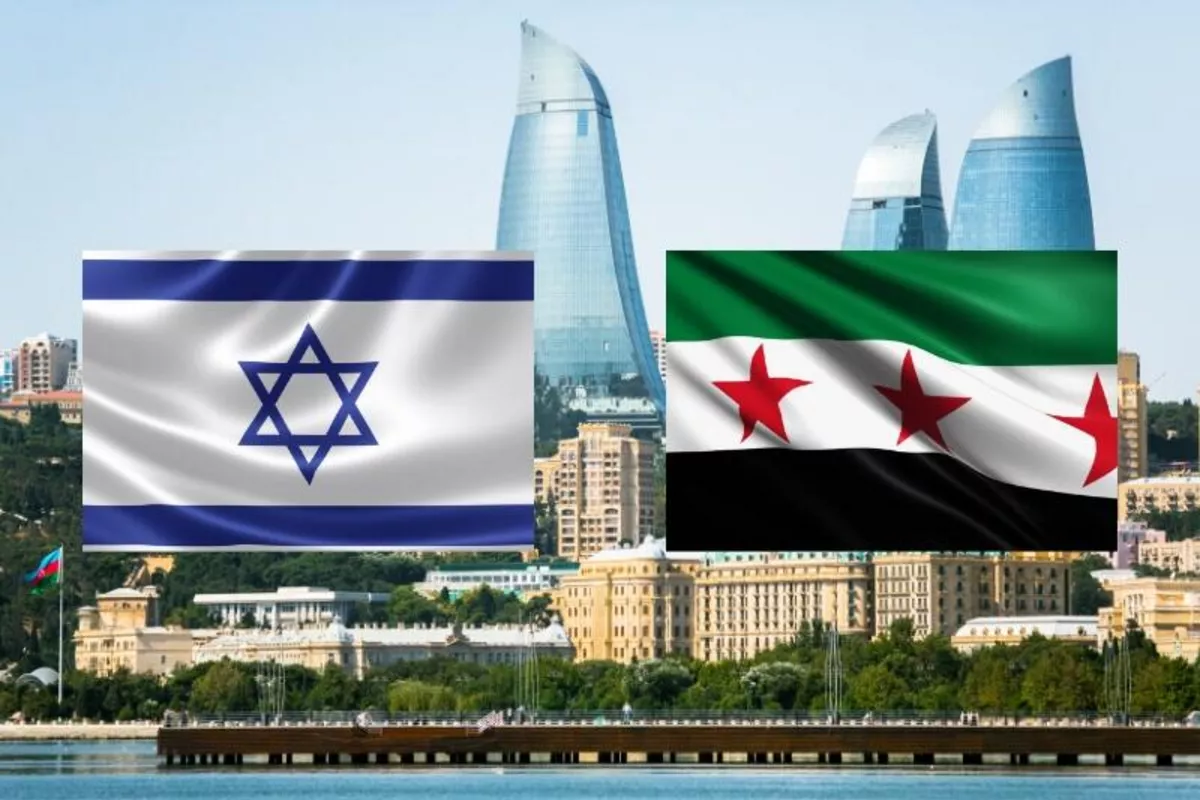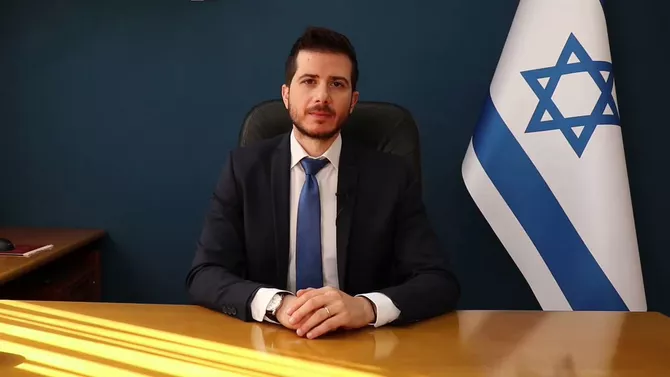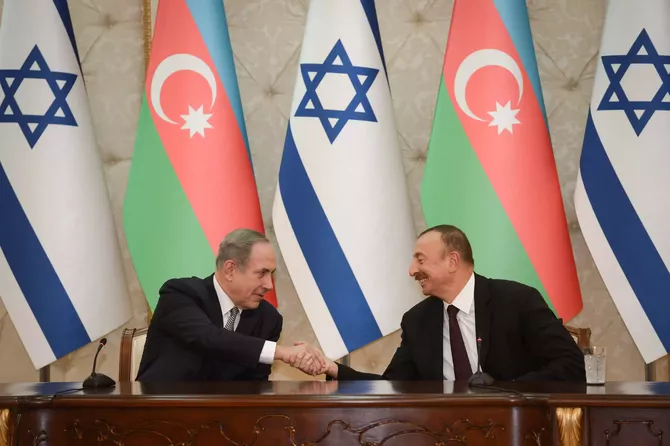
By placing itself at the crossroads of diplomacy, Azerbaijan is not just navigating regional tensions-it is redefining the role a small but confident state can play in shaping peace across borders.
The recent farewell of George Deek, Israel’s Ambassador to Azerbaijan, marked more than the end of a diplomatic posting. It highlighted the evolution of a strategic partnership that has quietly but effectively positioned Baku as a credible peace facilitator between unlikely parties-Israel and Syria among them.

photo: Xalq Qazeti
For six years, Ambassador Deek stood out not only as a diplomat but as a human bridge between peoples. He didn’t hide behind protocol; he stepped into the public eye, embraced Azerbaijani culture, spoke the language of the people, and-crucially-earned their trust. In doing so, he set a new standard for foreign envoys in the country, one now being emulated by others, including ambassadors from the U.K. and the U.S.
The Azerbaijan-Israel relationship is often underestimated in global discussions, but it is one of the most resilient and strategically balanced partnerships in the region. It functions far beyond defense and trade-it is grounded in mutual trust, shared security interests, and a growing recognition of Azerbaijan as a regional power capable of hosting critical conversations.
That recognition became even clearer with the confirmation by Hikmet Hajiyev, the Azerbaijani President’s Foreign Policy Advisor, that Baku hosted a round of discreet talks between Israeli and Syrian representatives. Though initially reported by AFP and unconfirmed at the time, Hajiyev’s statement to Jewish News Syndicate affirms that Azerbaijan is now playing a quiet but pivotal role in facilitating dialogue between sworn enemies.
What’s more striking is that these efforts are not occurring in isolation. According to Axios, a follow-up meeting involving senior officials from the U.S., Israel, and Syria is scheduled to take place in southern Syria, focusing on de-escalation and border security. While Washington’s involvement may draw attention, the groundwork-discreet, patient, and strategically timed-was laid in Baku.
It’s no accident that Azerbaijan was chosen. The capital’s neutrality, coupled with strong bilateral ties to both Israel and numerous Muslim nations, allows it to act as a trusted interlocutor. Unlike regional heavyweights that often come with political baggage, Baku maintains a careful equilibrium. It doesn't compromise its partnership with Israel, nor does it alienate its neighbor Iran or foreclose opportunities for cooperation with Syria.

photo: Israel Hayom
This isn’t just improvisation-it’s a deliberate foreign policy strategy. Analysts from JAM-news.net point to Azerbaijan’s calculated geopolitical balancing act. It is a policy born of necessity, sharpened by decades of conflict and diplomacy, and guided by long-term strategic vision. That includes engaging with Syria on energy cooperation while also reinforcing its security and cyber collaboration with Israel.
In fact, the roots of this strategic coordination run deep. According to recent reports, Israeli experts played a crucial role in shaping Azerbaijan’s political communication strategy in the early 2000s-especially during the information wars the country faced over the past two decades. Today, Israeli firms continue to support Azerbaijan’s cybersecurity infrastructure and national security systems, reinforcing a partnership built on substance, not slogans.
And the impact of this partnership is felt far beyond high politics. In the first half of 2025, the number of Israeli tourists visiting Azerbaijan nearly doubled, despite regional tensions and anti-Israel campaigns elsewhere in the Muslim world. That level of public trust-on both sides-is not easily won, nor should it be ignored.
This growing engagement sends a powerful message: diplomacy still works. And small, strategically positioned countries like Azerbaijan can do what others often can’t-build quiet channels of dialogue that, over time, may help reshape the landscape of the Middle East.
Baku’s emergence as a diplomatic venue is not an anomaly. It is a signal that the traditional power centers are no longer the only ones capable of facilitating peace. In today’s multipolar world, credibility often speaks louder than size.
And if peace does come to the region-if Israel and Syria move one step closer to understanding-it may well be because of conversations that began, quietly and away from cameras, in the capital of Azerbaijan.
Share on social media